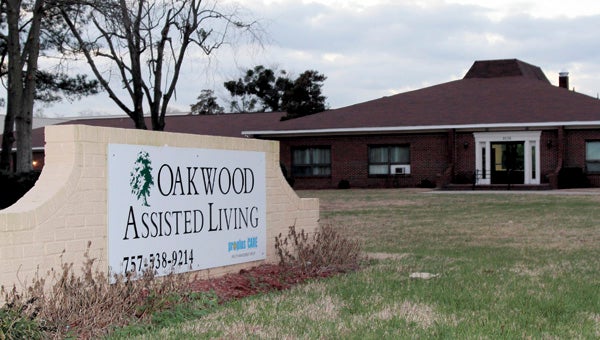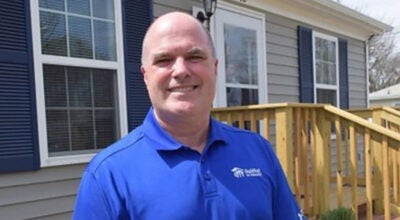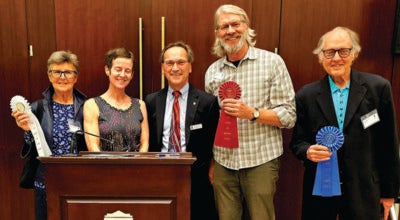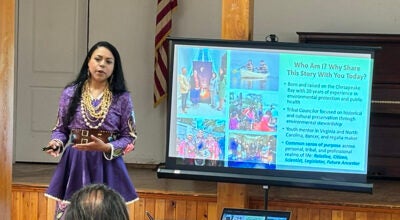Oakwood’s future uncertain
Published 12:31 am Thursday, April 4, 2013

State regulators have declined to renew the license of Oakwood Assisting Living in Suffolk, after scores of violations have been reported. Meanwhile, public guardianship programs have removed clients from the troubled facility.
Public guardianship programs managing the lives of many of the area’s most marginalized have been pulling clients from Suffolk’s Oakwood Assisted Living as it continues racking up violations.
According to Jim Rothrock, commissioner of the Virginia Department for Aging and Rehabilitative Services, Oakwood is currently home to only one of the more than 600 court-appointed clients of programs the commonwealth works with.
“My understanding is, there were a few more people that were there and are not there anymore,” Rothrock said.
“Around two have migrated to other residences, and I’m not exactly sure of the reason behind that.”
During a 21-month period, Oakwood has accumulated 100 violations of standards set by the State Board of Social Services.
Examples of violations include bedbugs, not enough furniture in rooms, drug abuse and physical confrontations.
Twenty-five violations were uncovered during the most recent inspection reported by the Virginia Department of Social Services, on Feb. 7.
They include an infection risk created by a resident touching the ice in a community bucket with his bare hand, lax tuberculosis screening for staff, resident records missing important information such as substance abuse history, and residents not receiving prescribed medication, including insulin.
Oakwood, and its earlier incarnation, NubJones, have also surfaced in police reports, including last April when an elderly woman was left in a critical condition after being attacked by another resident, and in March 2011 when a resident’s body was found in a nearby ditch.
Oakwood’s owner, Scott Schuett, who has not returned calls for comment, has previously called his company, ProPlusCare, an important provider of last-resort accommodation for society’s “forgotten people” — the mentally ill, substance abusers and elderly individuals with no family.
After his own license to operate such facilities was revoked, he is now appealing a Jan. 29 decision not to renew Oakwood’s license, according to Joron Moore-Planter, a spokeswoman for the Department of Social Services.
An informal conference, the first step in adjudicating the appeal, was held on Feb. 25, and it is unclear whether Schuett met Monday’s deadline to submit a proposed revised consent agreement/compliance plan.
Schuett had until the beginning of February to appeal the revocation of his own license, and no appeal with the Board of Long-term Care Administrators was apparent, according to Virginia Department of Health Professions spokeswoman Diane Powers.
The commonwealth has effectively closed several other facilities under ProPlusCare’s umbrella; only Colonial Home in Chesapeake and Ashwood in Hampton remain open, along with Oakwood, at least while Schuett’s appeal is active.
Oakwood’s reported last remaining public guardianship resident is a Jewish Family Services of Tidewater client, according to a Suffolk Circuit Court filing.
Public guardians are required to lodge annual accounts for clients to the appointing court, and the only current such filing at Suffolk’s courthouse detailing recent payments to Oakwood is for a JFS client. A call to Oakwood confirmed she remains a resident.
Approached after she and colleagues addressed a March 21 Public Guardian and Conservator Advisory Board meeting on challenges the group’s public guardianship program faces, Dorothy Salomonsky, personal affairs management director at JFS, declined to comment on the situation at Oakwood.
“I really don’t want to talk about it,” she said.
But the CEO of Catholic Charities of Eastern Virginia said its large public guardianship program has removed clients from Oakwood.
“We don’t have any clients (in Oakwood) now,” Neil McNulty said. “I’ve been here 18 months. There might have been people (in Oakwood) years ago, but we got them out.”
Though he said he didn’t know precisely why the clients were removed, he added, “I would be fairly confident that if things became questionable in any way, shape or form, we would have moved them out.”
“We want to make sure that our guardianship clients are very, very well cared for. We become attached to them, almost like family. Our local managers end up crying when they pass away.”
In its address to the advisory board last month, JFS reported difficulties funding its public guardianship program and finding homes for clients.
“The ALFs (assisted-living facilities) would like to work with people easy to work with … (but) unfortunately, that is not the clients I work with,” Clinical Manager Lloyd Clements said. “Most of the time, (clients) have difficulty living with other people, for whatever reason.”
JFS case manager Jamie Hayes discussed with Salomonsky and board members the alarming history of a 22-year-old Portsmouth woman and Romanian national who kills animals and wraps them in duct tape, broke her own leg while attacking a foster parent, and has been in and out of foster homes and institutions since being brought to the U.S. as a child — and not by foster parents — amid allegations of sexual abuse.
“One minute she will be smiling and happy as can be, the next minute she’s ready to attack you,” Haynes said.
The fate of the young woman, whose lack of citizenship leaves her unable to obtain benefits, has been in limbo since her release from prison just before last Christmas, according to the discussion.
The case illustrates an argument sometimes advanced by those involved with assisted-living facilities, where the mentally ill people they take in are free to come and go: It would be impossible for places like Oakwood to operate without violations, they say.
Rothrock, Virginia’s chief public guardianship bureaucrat, thinks the situation will improve when Adult Protective Services, now a DSS unit, moves to join Virginia Public Guardianship Programs and the State Long Term Care Ombudsman within DARS, planned for July.
“Pulling them all together, I think, is a substantial step forward to improve the network of services to the individuals,” he said.






